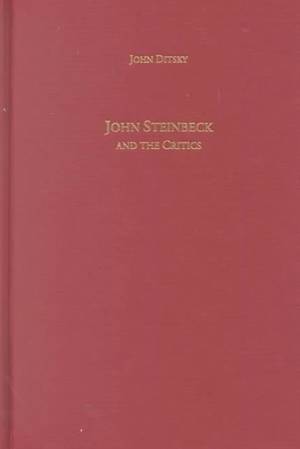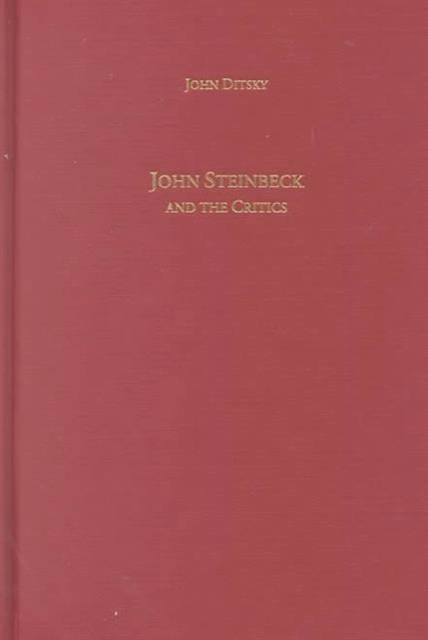
- Afhalen na 1 uur in een winkel met voorraad
- Gratis thuislevering in België vanaf € 30
- Ruim aanbod met 7 miljoen producten
- Afhalen na 1 uur in een winkel met voorraad
- Gratis thuislevering in België vanaf € 30
- Ruim aanbod met 7 miljoen producten
Zoeken
Omschrijving
A fascinating survey of the changing fortunes of Steinbeck's critical reputation. This work by a prominent Steinbeck scholar begins with a study of the novelist's early celebrity in the 1930s and 1940s. Ditsky shows that by the late 1940s there was some falling off in Steinbeck's critical reputation, and yet that is also the period in which the 'first generation' of Steinbeck critics did their first work: seminal commentary by Peter Lisca, Warren French, and Joseph Fontenrose. These critics were unwilling to accept the fact that the proletarian writer of the 1930s was a thing of the past, and that formally he had become much more experimental. In the 1960s, a second generation of critics such as Robert DeMott, Louis Owens, Mimi Gladstein and others, led by the Steinbeck Society's Tetsumaro Hayashi, began to show what the later Steinbeck was about. As the anniversaries of publication of the classic early works approached in the 1970s, there was a quantitative peaking of book-length criticism, accompanied by a spate of conferences in various worldwide venues. A number of anthologies of journal-published articles were published, including one edited by Professor Ditsky. The last two decades have seen new voices emerge, many going beyond close readings to apply contemporary critical methods to a writer increasingly seen as postmodernist. John Ditsky teaches at the University of Windsor, Ontario, Canada. He has published more than 1300 poems and has written four critical works, three of them on Steinbeck.
Specificaties
Betrokkenen
- Auteur(s):
- Uitgeverij:
Inhoud
- Aantal bladzijden:
- 170
- Taal:
- Engels
- Reeks:
- Reeksnummer:
- nr. 1
Eigenschappen
- Productcode (EAN):
- 9781571132109
- Verschijningsdatum:
- 17/08/2000
- Uitvoering:
- Hardcover
- Formaat:
- Genaaid
- Afmetingen:
- 160 mm x 238 mm
- Gewicht:
- 403 g

Alleen bij Standaard Boekhandel
+ 354 punten op je klantenkaart van Standaard Boekhandel
Beoordelingen
We publiceren alleen reviews die voldoen aan de voorwaarden voor reviews. Bekijk onze voorwaarden voor reviews.











